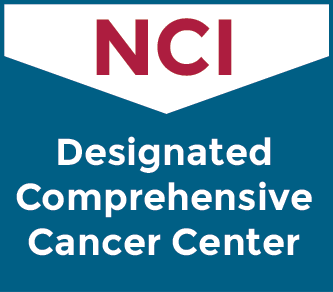Questions to Ask Your Medical Team About Brain Metastasis
Brain metastasis, or secondary brain cancer, occurs when cancerous cells break away from a primary tumor in another part of the body, enter the bloodstream or lymphatic system and travel to the brain. Many types of cancer have the potential to spread to the brain, but some are more likely to do so than others. The most common sources of brain metastasis are lung cancer, breast cancer, melanoma, kidney cancer and colorectal cancer. Other cancers, such as ovarian cancer, pancreatic cancer and prostate cancer, can also spread to the brain in advanced stages.
As a metastatic tumor grows in the brain, it may begin to press on sensitive neural tissues, leading to symptoms such as headaches, seizures, cognitive changes and neurological deficits. In many cases, a combined treatment approach is required to effectively manage the symptoms and slow the progression of the cancer.
If you have been diagnosed with brain metastasis, maintaining clear and open communication with your medical team is essential. Asking the right questions can help you better understand your condition, explore your treatment options, and make educated decisions about your care.
Understanding your brain metastasis diagnosis
A clear understanding of your cancer diagnosis is the foundation of informed decision-making. Your medical team can explain how brain metastasis can impact your health and what you might expect moving forward. If anything is ever unclear, do not hesitate to request more details at any time. Some key questions you might ask include:
- What is the risk percentage of brain metastasis for people with my primary cancer type?
- Are single or multiple brain metastases more common with my primary cancer type?
- What could a brain metastasis diagnosis mean for my overall health?
- If I have been diagnosed with brain metastasis, how many metastatic brain tumors have been detected, and where are they located?
- Can brain metastasis affect my primary cancer? If so, how?
- Do you have any printed or digital educational materials for patients?
Exploring your brain metastasis treatment options
After your diagnosis is confirmed, your medical team will develop a proposed treatment plan based on several individual factors, including the location, size and number of brain metastases and your overall health and preferences. Your options may include surgery, radiation therapy and/or systemic therapy, such as chemotherapy. A full understanding of all available options, along with the associated benefits and risks, is essential for making the best possible decisions about your care. Questions to ask your providers include:
- What treatment options are available for brain metastasis? Which do you recommend for me and why?
- What are the benefits and risks of each brain metastasis treatment option?
- Where can I receive my treatment?
- What will happen before, during and after my treatment?
- Can I drive to and from the treatment center alone, or will I need to arrange transportation?
- What is the timeline for my treatment?
- How will we know if my brain metastasis treatment is working?
- What is the follow-up plan if my treatment is ineffective?
- Are there clinical trials I should consider?

Managing brain metastasis symptoms and treatment side effects
Brain metastasis and its treatment can cause side effects that vary from person to person. Some patients experience headaches, seizures, cognitive changes or neurological deficits, while others have mild or no symptoms. Your medical team can help you anticipate and manage any brain metastasis symptoms and treatment side effects, potentially improving your comfort and quality of life. To better prepare, consider asking these questions:
- What brain metastasis symptoms can I expect, and how can I manage them?
- What are the potential short– or long-term side effects of my brain metastasis treatment, and how can I manage them?
- Are there medications or other supportive therapies available to ease any symptoms or side effects?
- How can brain metastasis treatment potentially impact my function and quality of life?
- What lifestyle changes can support my well-being during brain metastasis treatment?
Coordinating brain metastasis care
Effective brain metastasis treatment often requires a multispecialty approach. For this reason, you will likely work with a team of experts, such as oncologists, neurosurgeons and radiation therapists. In addition to medical treatment, you may benefit from supportive therapies, which can play an important role in enhancing your well-being and quality of life. Coordination among specialists is vital to ensure all aspects of your care are fully addressed. Your medical team can also connect you with helpful resources. Some questions you may want to ask include:
- How will my care be coordinated among my oncology team and other specialists?
- Who should I contact if I experience new or worsening symptoms or side effects?
- Are there support groups or counseling services available for brain metastasis patients and their families?
- How can I prepare for possible changes in my daily routine during brain metastasis treatment?
 Florida's Largest NCI Cancer Center
Florida's Largest NCI Cancer Center
Recognized as a leader in cancer excellence, Moffitt is the state's largest National Cancer Institute-designated Comprehensive Cancer Center by cancer patient volumes.
Maintaining open communication with your medical team
Effective communication with your healthcare providers will help ensure you receive the best possible care. Being proactive and engaged in discussions about your treatment plan will allow you to become knowledgeable about your condition and make well-informed choices that align with your personal needs and goals. Consider these strategies for staying aware and involved in your care:
- Write down any questions as they occur to you and bring your list to each medical appointment to help ensure all your concerns are addressed.
- Take notes or record discussions (with permission) so you can review key information later.
- Ask for clarification if any medical terms or explanations are unclear. Your medical team is there to help.
- Ask a trusted family member or friend to accompany you to your appointments. They can provide emotional support if necessary and help you remember important details.
- Stay knowledgeable by researching your condition through reputable sources. Ask your medical team for recommendations.
Benefit from world-class care at Moffitt Cancer Center
By taking an active role in your care and fostering open dialogue with your medical team, you can better navigate your journey with brain metastasis. As Florida’s top cancer hospital, Moffitt can provide expert care, guidance and support to help you through every step of your treatment. If you have questions or need assistance, you can request an appointment with a specialist in our Neuro-Oncology Program by calling 1-888-663-3488 or submitting a new patient registration form online. We do not require referrals.
Brain Metastases
- Acute Lymphocytic Leukemia (ALL)
- Acute Myeloid Leukemia (AML)
- Acute Promyelocytic Leukemia (APL)
- Adenocarcinoma
- Adrenal Cancer
- Anal Cancer
- Appendiceal (Appendix) Cancer
- Astrocytoma
- Basal Cell Carcinoma
- Bladder Cancer
- Bone Metastasis
- Brain Cancer
- Brain Tumor
- Brain Metastases
- Breast Cancer
- Cervical Cancer
- Cholangiocarcinoma (Bile Duct Cancer)
- Chronic Lymphocytic Leukemia (CLL)
- Colon Cancer
- Colorectal Cancer
- Chronic Myeloid Leukemia (CML)
- Cutaneous Lymphoma (CTCL)
- Diffuse Large B-Cell Lymphoma
- Ductal Carcinoma In Situ
- Endometrial (Uterine) Cancer
- Esophageal Cancer
- Follicular Lymphoma
- Gallbladder Cancer
- Gastrointestinal Carcinoid Tumor
- GIST (Gastrointestinal Stromal Tumor)
- Glioblastoma
- Head and Neck Cancer
- HER2 Positive Breast Cancer
- Hodgkin Lymphoma
- Inflammatory Breast Cancer
- Invasive Ductal Carcinoma
- Kidney (Renal Cell) Cancer
- Leukemia
- Liver (Hepatocellular) Cancer
- Low-Grade Glioma
-
Lung Cancer
- Signs and Symptoms
- Diagnosis
- Treatment
- Clinical Trials
- FAQs
- Lung Cancer Early Detection Center
- Lung Cancer Screening and Surveillance Program
- Lung Nodules
- Lung Surveillance Clinic
- Metastatic Lung Cancer
- Recurrence
- Survival Rate
- Your Lung Cancer Specialists
- Lung and Thoracic Tumor Education (LATTE)
- Thoracic Clinic Updates
- Insurance & Financial Information
- Lymphomas (Hodgkin and Non-Hodgkin)
- Mantle Cell Lymphoma
- Melanoma
- Meningioma
- Merkel Cell Carcinoma
- Mesothelioma
- Metastatic Breast Cancer
- Monoclonal Gammopathy of Undetermined Significance (MGUS)
- Multiple Myeloma-Plasma Cell Tumor
- Myelodysplastic Syndromes (MDS)
- Neuroendocrine Tumor
- Neurofibromatosis
- Non-Hodgkin Lymphoma
- Non-Small Cell Lung Cancer
- Oral Cavity (Mouth) Cancer
- Oral Cavity or Throat Cancer
- Osteosarcoma
- Ovarian Cancer
- Pancoast Tumor
- Pancreatic Cancer
- Penile Cancer
- Pituitary Adenoma
- Prostate Cancer
- Rectal Cancer
- Sarcoma
- Skin Cancer (Nonmelanoma)
- Skull Base Tumors
- Small Intestine Cancer
- Spinal Tumor
- Squamous Cell Carcinoma
- Small Cell Lung Cancer
- Smoldering Multiple Myeloma
- Stomach (Gastric) Cancer
- Suspicion of Cancer
- Testicular Cancer
- Throat Cancer
- Thymoma
- Thyroid Cancer
- Tongue Cancer
- Tracheal Cancer
- Triple Negative Breast Cancer
- Vaginal Cancer
- Vulvar Cancer
